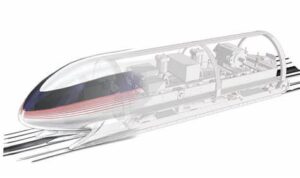Learn more about the benefits of micro-fulfillment centers and agile warehousing and their associated implications on e-commerce!
In the fast-paced world of e-commerce, meeting customer expectations for quick and efficient order fulfillment has become a top priority for retailers and logistics providers. Traditional large-scale distribution centers, while effective for bulk storage and order processing, face challenges in handling the growing demand for same-day and next-day deliveries. This has led to the emergence of innovative solutions like micro-fulfillment centers and agile warehousing, transforming the landscape of e-commerce fulfillment. In this article, we delve into the concept of micro-fulfillment centers and agile warehousing, exploring their benefits and implications for the e-commerce industry.
Understanding Micro-Fulfillment Centers
Micro-fulfillment centers (MFCs) are compact, automated fulfillment facilities strategically located closer to urban centers and consumer hubs. These centers are designed to optimize last-mile delivery and enhance order processing efficiency. Leveraging advanced robotics and automation technologies, MFCs enable retailers to process and fulfill online orders with unprecedented speed and accuracy. With their smaller footprint and proximity to end consumers, MFCs significantly reduce delivery times, allowing retailers to offer same-day and even one-hour delivery options.
The Advantages of Micro-Fulfillment Centers
Rapid Order Processing: MFCs utilize state-of-the-art automation to process orders at high speeds, ensuring timely delivery to customers.
Space Optimization: Compact MFCs are designed to maximize storage and processing efficiency, making the most of limited warehouse space in urban areas.
Last-Mile Optimization: By situating MFCs closer to customers, retailers can reduce last-mile delivery distances and enhance overall delivery speed.
Scalability: MFCs offer a scalable solution for e-commerce businesses, allowing them to expand their fulfillment network without investing in large-scale warehouses.
Reduced Labor Costs: Automation in MFCs reduces the need for manual labor, leading to cost savings and improved workforce productivity.
Inventory Management: MFCs enable real-time inventory management, ensuring accurate stock levels and minimizing the risk of stockouts.
Agile Warehousing: Embracing Flexibility and Adaptability
Agile warehousing is a concept that emphasizes flexibility and adaptability in warehouse operations. Traditional warehouses often face challenges in accommodating fluctuations in demand, seasonal peaks, or unexpected changes in order volumes. Agile warehousing addresses these challenges by adopting dynamic and modular solutions. This may involve using movable storage units, flexible layouts, and multi-use spaces that can quickly adapt to changing demands.
The Advantages of Agile Warehousing
Adaptability: Agile warehouses can quickly respond to changing market dynamics and fluctuations in demand, ensuring optimal use of space and resources.
Efficiency: With flexible layouts and optimized processes, agile warehouses minimize order processing times and improve overall efficiency.
Cost-Effectiveness: By scaling operations based on actual demand, agile warehousing helps reduce unnecessary overheads and operational costs.
Scalability: Agile warehouses offer scalability without large upfront investments, allowing businesses to grow or downsize as needed.
Risk Mitigation: With the ability to quickly adapt to disruptions or unforeseen events, agile warehousing reduces the risk of supply chain disruptions.
The Synergy of Micro-Fulfillment and Agile Warehousing
Combining the benefits of micro-fulfillment centers and agile warehousing can yield a powerful and dynamic fulfillment network for e-commerce businesses. By strategically locating MFCs in urban areas and adopting agile warehousing principles, retailers can achieve an optimal balance between last-mile efficiency and adaptability to changing demands. This integrated approach empowers retailers to offer fast and reliable delivery services while maintaining cost-effectiveness and operational resilience.
Micro-fulfillment centers and agile warehousing are transforming the e-commerce fulfillment landscape, redefining how retailers meet customer expectations for rapid order processing and delivery. As the demand for quick and efficient e-commerce fulfillment continues to grow, businesses must embrace innovative solutions to stay ahead of the competition. By adopting micro-fulfillment centers and agile warehousing principles, retailers can build a responsive and customer-centric fulfillment network, setting the stage for success in the dynamic world of e-commerce.
The Perfect Planner Team is here if you have any questions about Micro-Fulfillment Centers and Agile Warehousing, and we offer a free consultation service. If you would like to connect with us on this article or any other topic, please message us on LinkedIn, shoot us an email at info@perfectplanner.io, visit our website at www.perfectplanner.io, or give us a call at 423.458.2979.
Author: Thomas Beil
Publication Date: November 2, 2023
© Copyright 2023 Perfect Planner LLC. All rights reserved.






